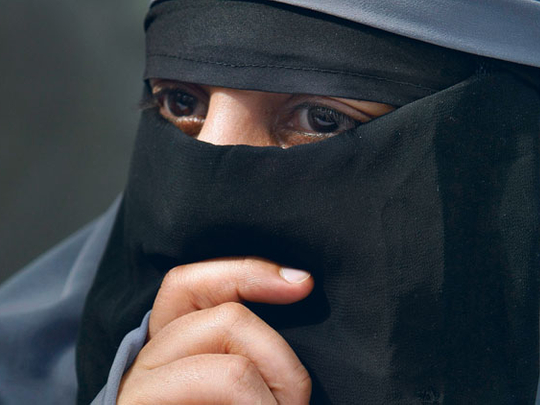
Writing during a period of great religious conflict, John Locke stated that the ‘toleration of those that differ from others in matters of religion is so agreeable to ... the genuine reason of mankind, that it seems monstrous for men to be so blind as not to perceive the necessity and advantage of it.' Over 300 years on, this most basic tenet of European Enlightenment thought — the freedom of religious belief and practice — is increasingly under attack.
In France, a nation where the far-right, nationalist National Front party polled almost 12 per cent of the national vote in last year's regional elections, legislation has come into force last week that makes it a crime to wear the burqa and niqab in public.
In Belgium, similar legislation is also in the pipeline. In Holland, Geert Wilders' Party for Freedom (PVV), whose manifesto includes a ban on the Quran and an end to all immigration from Muslim countries, became the third-largest party in last year's general election. Even the traditionally liberal Swedes saw the far-right Sweden Democrat party win representation in parliament for the first time in their 2010 elections.
Far right, often anti-immigrant and anti-Muslim, parties have experienced a resurgence in Austria, Belgium, Bulgaria, Denmark, France, Finland, Greece, Hungary, Italy, Latvia, Romania and Slovakia. Germany's Chancellor Angela Merkel and Britain's Prime Minister David Cameron have both recently dismissed multiculturalism as a failure. In the United States, where there is a much smaller proportion of Muslims — about 1 per cent of the population compared with about 5 per cent in Europe — Islamophobia is also on the rise. While incidents such as pastor Terry Jones's decision to burn a Quran or the furore over the ‘Ground Zero mosque' might grab the global headlines, they are at the extreme end of a much wider movement.
Indeed, the resurgent right in America has seemingly identified anti-Muslim feeling as a popular campaigning issue as the US gears up for 2012 elections. By tapping into the well of post 9/11 raw emotion that is still fresh in the US psyche, they may consider that there is political capital in playing the anti-Islam card. It is fair to say that many Americans regard Islam as an imposing political ideology as well as a religion.
Convenient scapegoats
Recently, I watched Nick Broomfield's 2007 film Battle for Haditha. The film is a drama done in documentary style that looks into the Haditha incident in Iraq, when US Marines allegedly shot 24 men, women and children in a retaliatory killing. What makes it memorable is the rarity of seeing Muslims depicted in a normal way, doing normal things, like normal people.
Muslims of the western popular imagination are too often angry men waving guns or distraught women wailing beside gravesides. They are patriarchal husbands, violent fathers, or repressed women forced to cover their faces and murdered in the name of honour. Against this backdrop, it is not surprising that there has been a seeming growth in religious intolerance and anti-Muslim sentiment on both sides of the Atlantic, which has been epitomised last week in France's burqa ban.
In times of economic austerity, it is common for frustrations to be vented on convenient scapegoats, and for centuries, minority or immigrant populations have fulfilled this role. European prejudices have shifted to take on each new wave of immigration — from the French Huguenots in the 16th century and Spanish Jews in the 17th century to more recent waves of immigrants from the Asian and African continents.
Although the Enlightenment laid the ground for religious tolerance, European history is nevertheless stained with expulsions, inquisitions, pogroms and massacres culminating last century with Nazi Germany's gas chambers.
While post-Second World War Europe has been a place of unparalleled freedom and tolerance, one must be alert to the danger presented by the coincidence of prolonged economic crisis, rising unemployment, declining social welfare provision and growing anti-Islamic feeling. As Locke warned three centuries ago, unless there is a clear distinction made between ‘the business of civil government' and religion, ‘there can be no end put to the controversies that will be always arising...'
— Christian Science Monitor
Stefan Simanowitz is a writer, broadcaster, and journalist.









